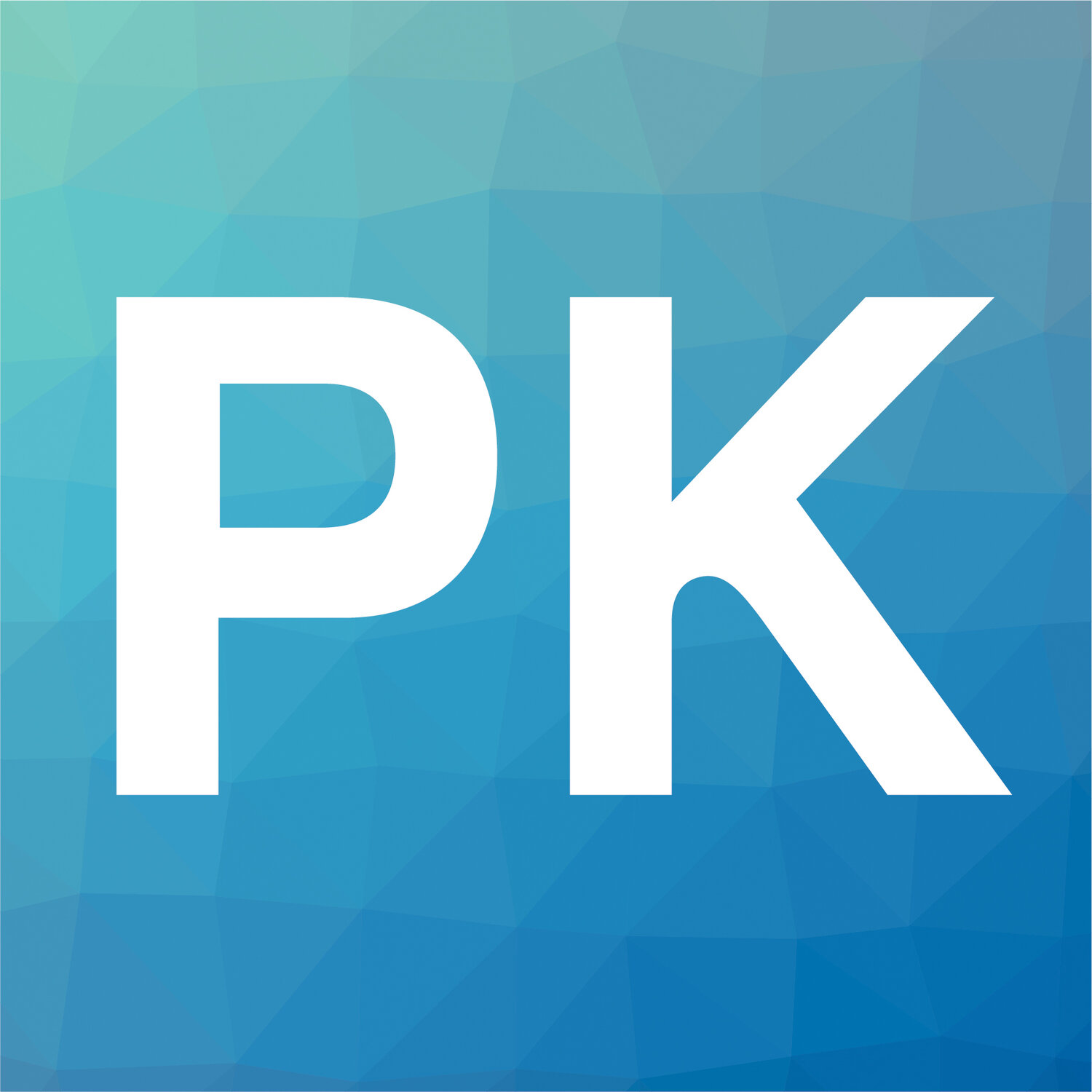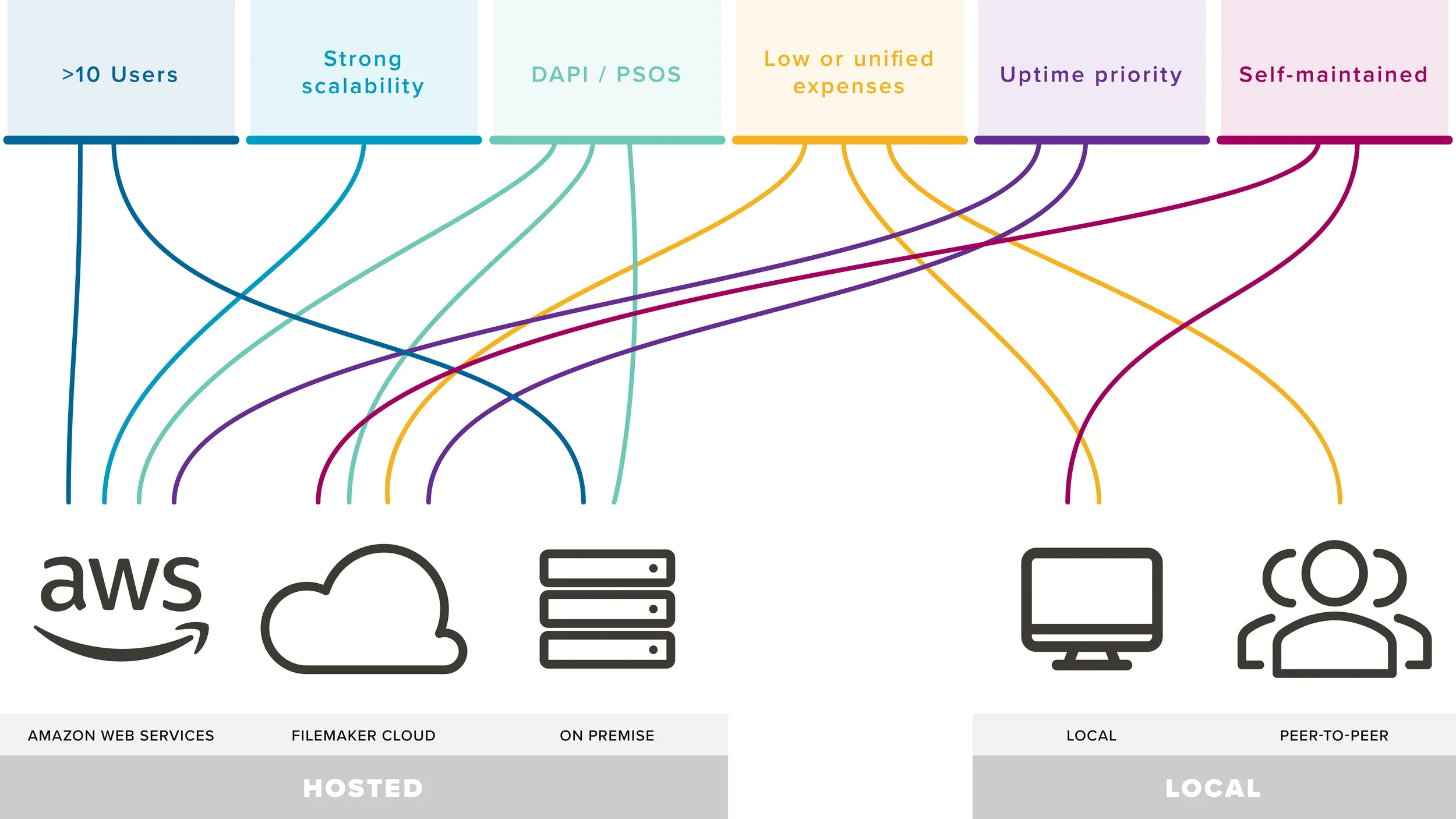Last week, we discussed the pros and cons of FileMaker’s three hosted solutions for storing your database (cloud, on premise, and FileMaker Cloud). In addition to those options, there are also two local options: Local file and peer-to-peer sharing. This week, we’ll review the pros and cons of these.
Local File
There are a few instances where this can be a strong option for an individual. However, it doesn’t promote organizational growth, so be aware that your database will need to be restricted to a one-person operation.
Pros:
Speed. Due to not being transmitted over the internet, your database has the potential to be incredibly fast—depending on the drive it’s loaded to.
No hosting costs or recurring licensing expenses. You’ll need to purchase a single licence of FileMaker Pro (roughly $500) and provide maintenance for the computer it is running on, but those are the only expenses if you don’t need to upgrade.
Restricted access. If you have stringent security needs requiring a physically isolated network, this is an option for you.
Cons:
Restricted access. Just as the isolated nature of a local file protects a database from outside forces, it also makes it difficult if you have a need to access it from more than the computer it’s loaded on.
Limited resources. You can’t run server tools such as Perform Script on the Server, use the Data API, or access your database from a web browser. This can impact performance as well as reduce your capabilities.
Short shelf life. Servers are designed to last easily a decade or longer. Consumer-grade computers are not. Every database arrangement should include a backup process, but especially for local files as the machines that host them are far more susceptible to corruption and accidents.
Peer-to-Peer Sharing
Peer-to-peer sharing resembles soft hosting. Some of our clients successfully use it for their needs, though a hosted file solution is almost always superior.
Pros:
More accessibility. Multiple people can access and use the database at once, providing their all on the same wifi network.
No hosting costs or recurring licensing expenses. This is the same as local files.
Restricted access. Anyone on the same wifi network can access the database, making it not quite as secure as a local file. However, that’s still fairly limited to allow for security considerations.
Cons:
Restricted access. Database usage is expanded compared to the local file, but it’s still heavily restricted and inaccessible to anyone not physically in the same location.
Wifi only. This is not supported over an ethernet connection; devices must be on the same wifi network to access the database.
Limited support. This feature is only supported for testing in FileMaker 19, and most likely will be deprecated in newer versions.
Dedicated computer. The computer sharing the file on the network (the host computer), cannot have FileMaker in use on their computer. A machine needs to be dedicated to providing the database but not using it for the rest of the location.
Limited resources. The same lack of server tools as a local file.
The successful use cases for both of these options are fairly limited and we almost never recommend them. However, there are a few occasions when they can be the best solution to a specific problem or constraint—such as environments with heavy security protocols or organizations with only one employee.
PK Information is a FileMaker-certified development agency serving the Tampa Bay, Miami Lakes, and Knoxville regions. We believe software should work the way you do, with business priorities first and technology second.
LEARN MORE
Would you like to learn more about hosting options for your FileMaker database? We’d love to discuss the possibilities with you!

